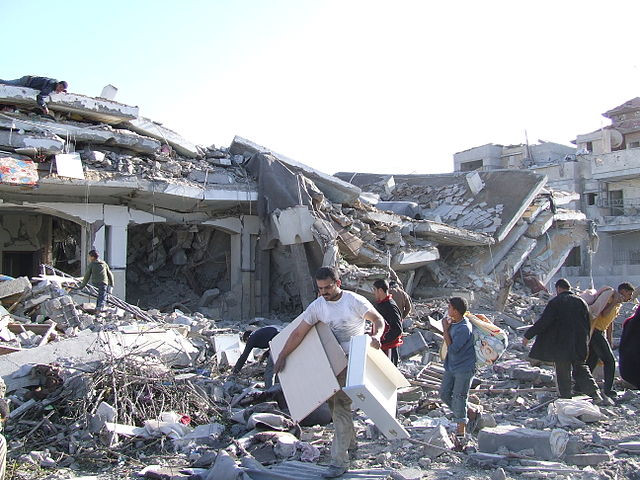Gaza's humanitarian crisis deepened Sunday as Israeli gunfire killed at least 12 Palestinians near two aid distribution points backed by the U.S. and Israel, according to Palestinian health officials. The International Committee of the Red Cross (ICRC) warned that the territory's health system is "extremely fragile" and at risk of collapse under the ongoing blockade and intensified fighting.
The ICRC said its field hospital in Rafah has activated mass casualty protocols 12 times over the past two weeks due to a surge in gunshot and shrapnel injuries. "An overwhelming majority of patients from the recent incidents said they had been trying to reach assistance distribution sites," the ICRC stated Sunday on X.
Since the U.S.- and Israeli-supported Gaza Humanitarian Foundation (GHF) began operations on May 27, at least 125 Palestinians have died and 736 have been wounded near aid sites, according to Gaza's Government Media Office. The foundation replaced the United Nations and other international groups after an 11-week aid blockade.
Israeli forces reportedly opened fire Sunday on crowds near distribution hubs east of Rafah and at Wadi Gaza Bridge. Gaza's Health Ministry said at least 108 bodies were brought to hospitals in the previous 24 hours, including 11 at Nasser Hospital in Khan Younis. Al-Awda Hospital also reported one death and 29 injuries near a central Gaza GHF site.
Israel's military claimed it fired only warning shots at individuals who "continued advancing in a way that endangered the soldiers." The area was designated an active combat zone during night hours, according to the military.
Witnesses described chaos. "We didn't know how to escape," said Adham Dahman, who was injured and treated at Nasser Hospital. "This is trap for us, not aid." Another witness, Zahed Ben Hassan, questioned, "They said it was a safe area from 6 a.m. until 6 p.m. ... So why did they start shooting at us?"
Children were seen weeping beside the bodies of their parents. One young girl cried, "I can't see you like this, Dad!"
Despite the violence, a GHF official, speaking anonymously due to operational rules, insisted Sunday there were no incidents "at any of our three sites." The group had briefly paused operations last week for discussions with the Israeli military on safety measures.
The aid hubs are situated inside Israeli military zones inaccessible to independent journalists. The United Nations has warned the new system lacks transparency and forces civilians to relocate under duress. "The new system is unable to meet mounting needs," a U.N. official stated previously, noting widespread looting and Israeli restrictions hamper humanitarian delivery.
The Red Cross cautioned that ongoing hostilities threaten the few remaining hospitals in Gaza. "This has made patient transfers between facilities increasingly challenging, and in many cases, patients cannot receive the intensive or specialized care they require," the organization said.
Meanwhile, Israel's military said it located the body of Mohammed Sinwar, head of Hamas' armed wing, beneath the European Hospital in Khan Younis. "(Israeli forces) would prefer not to hit or target hospitals," said army spokesperson Brig. Gen. Effie Defrin, adding Sinwar's body was found in a room under the emergency ward.
The conflict, which began on October 7, 2023, after a Hamas-led assault killed about 1,200 Israelis and took 251 hostages, has left more than 54,800 Palestinians dead, according to Gaza's Health Ministry. The majority of those killed are reportedly women and children, though exact breakdowns of civilians versus combatants remain unverified.






